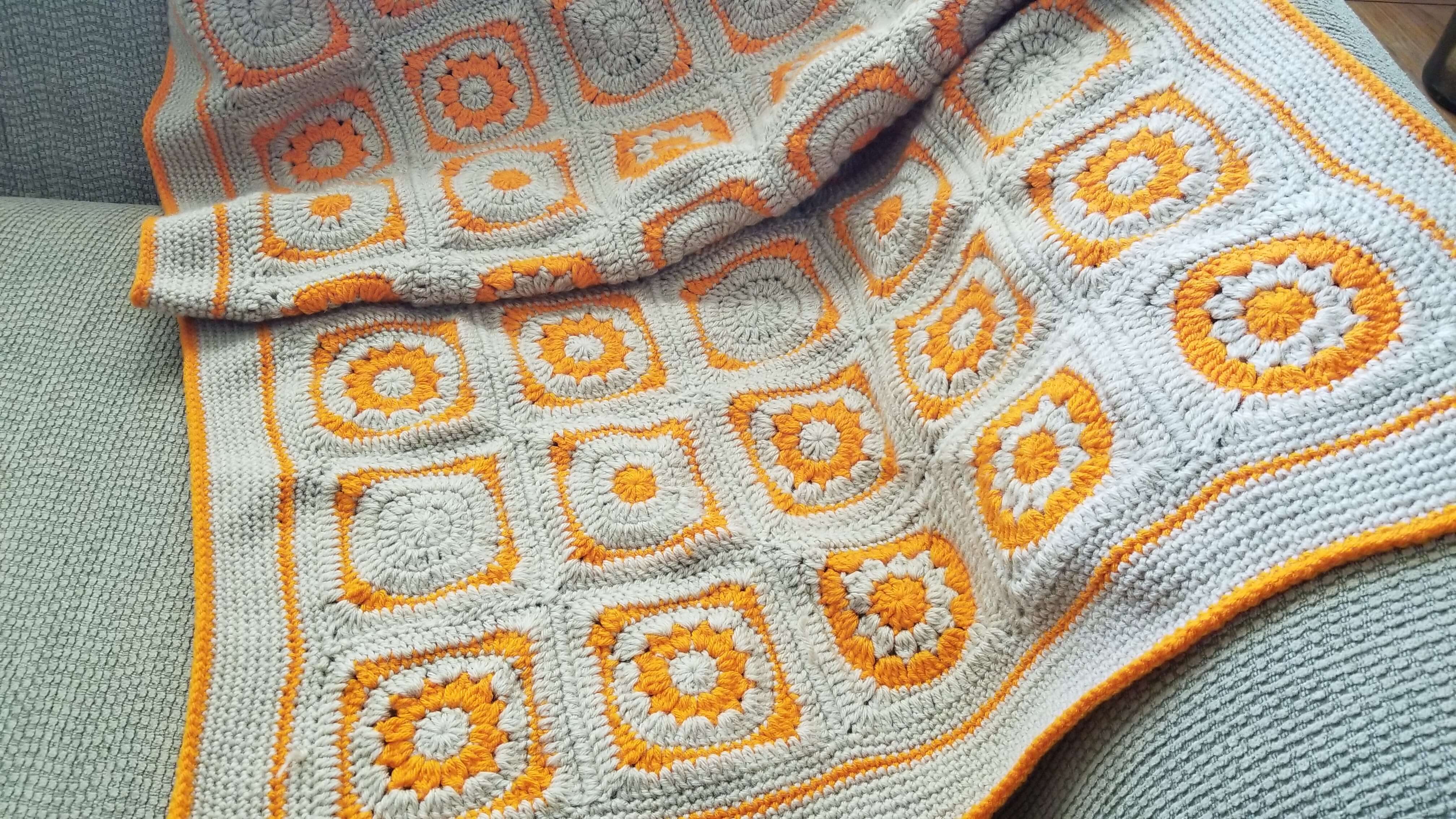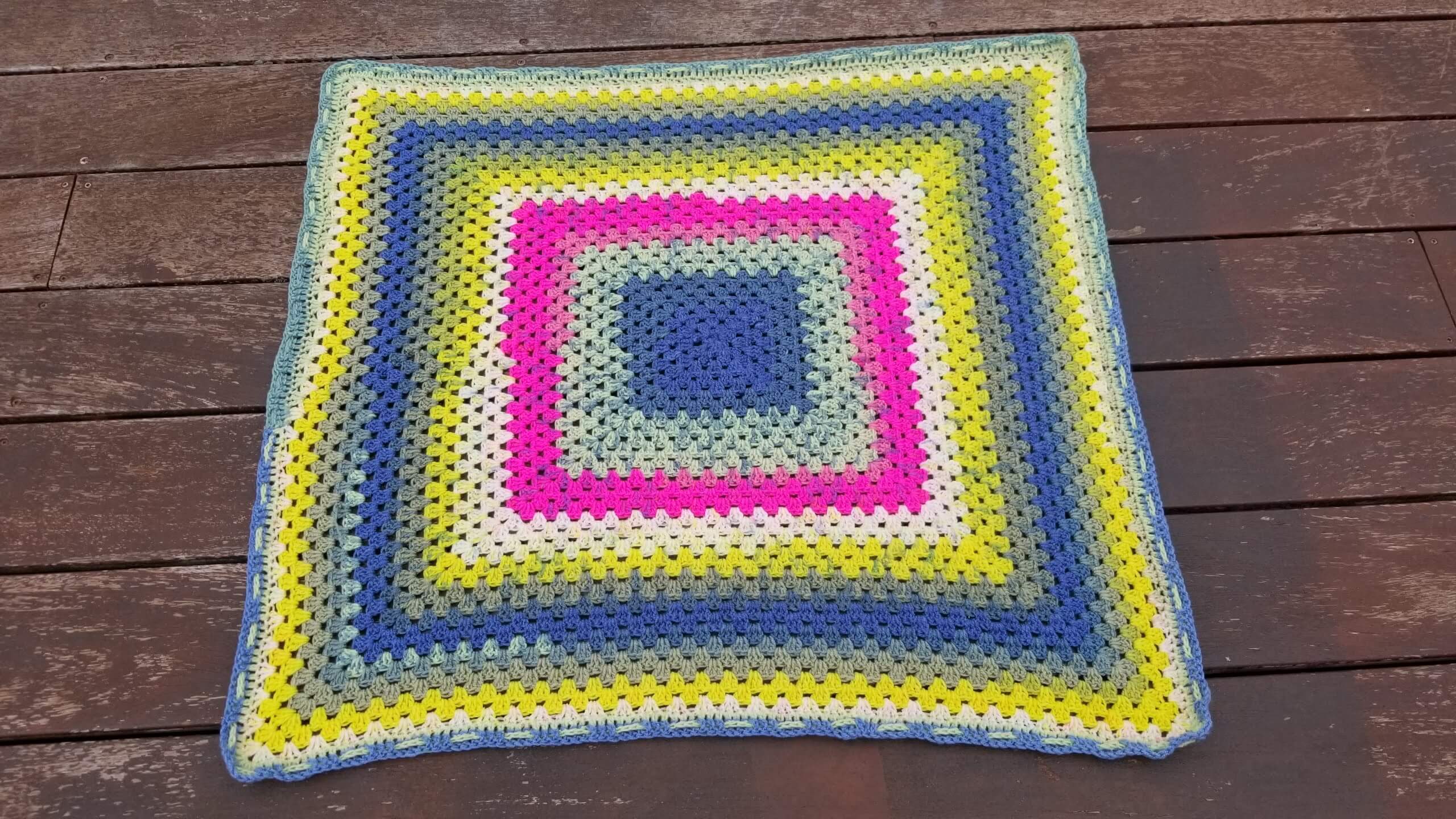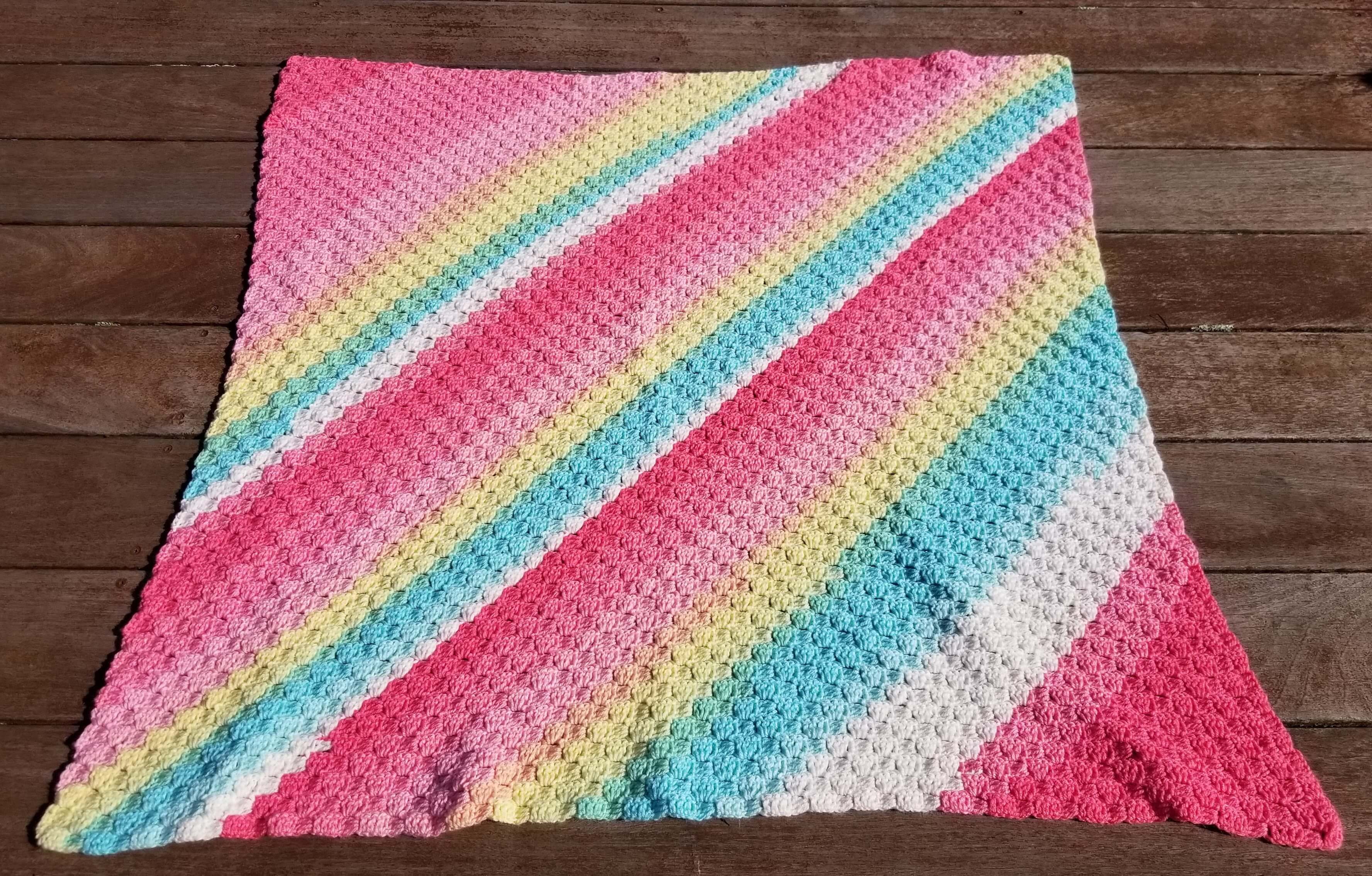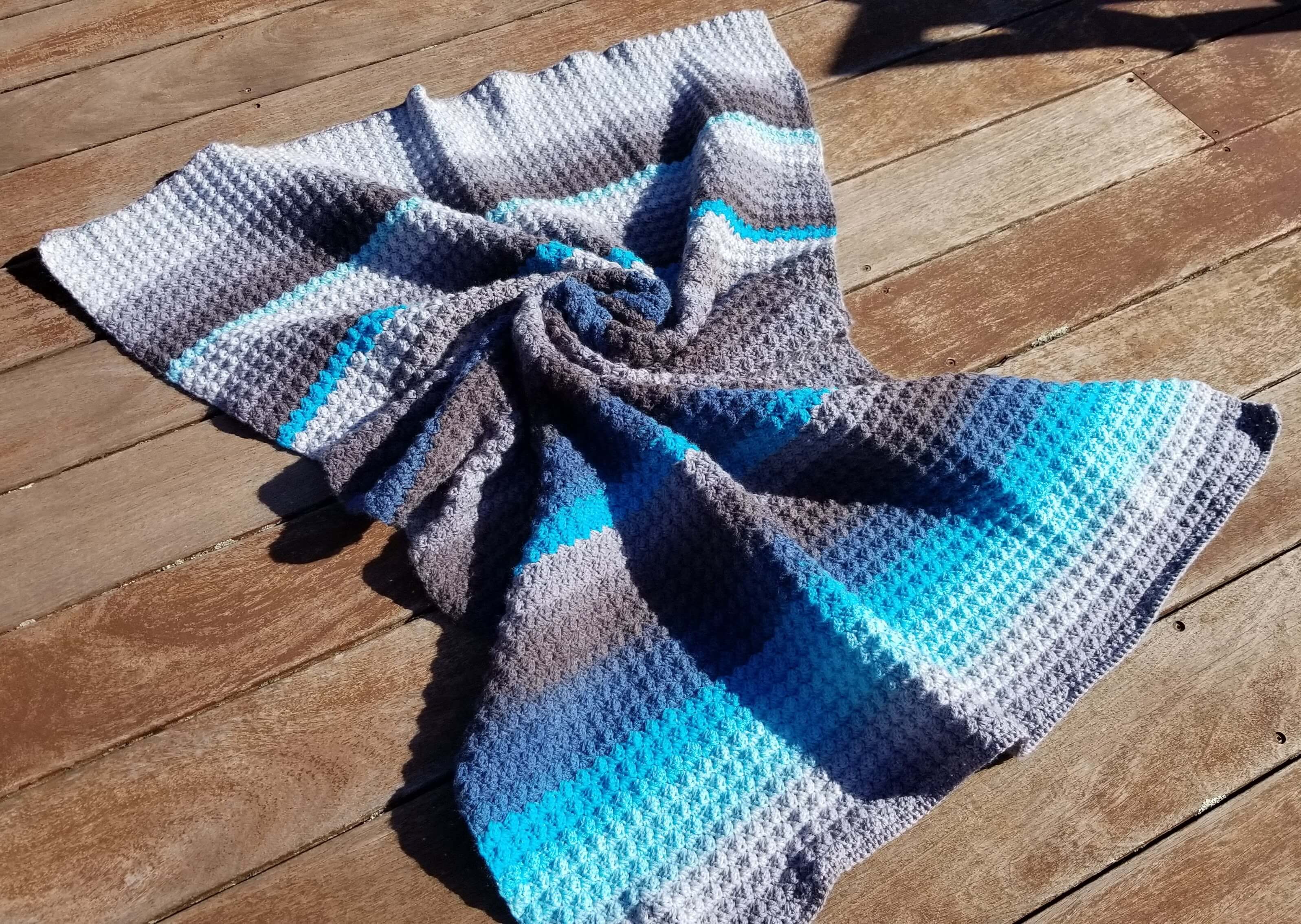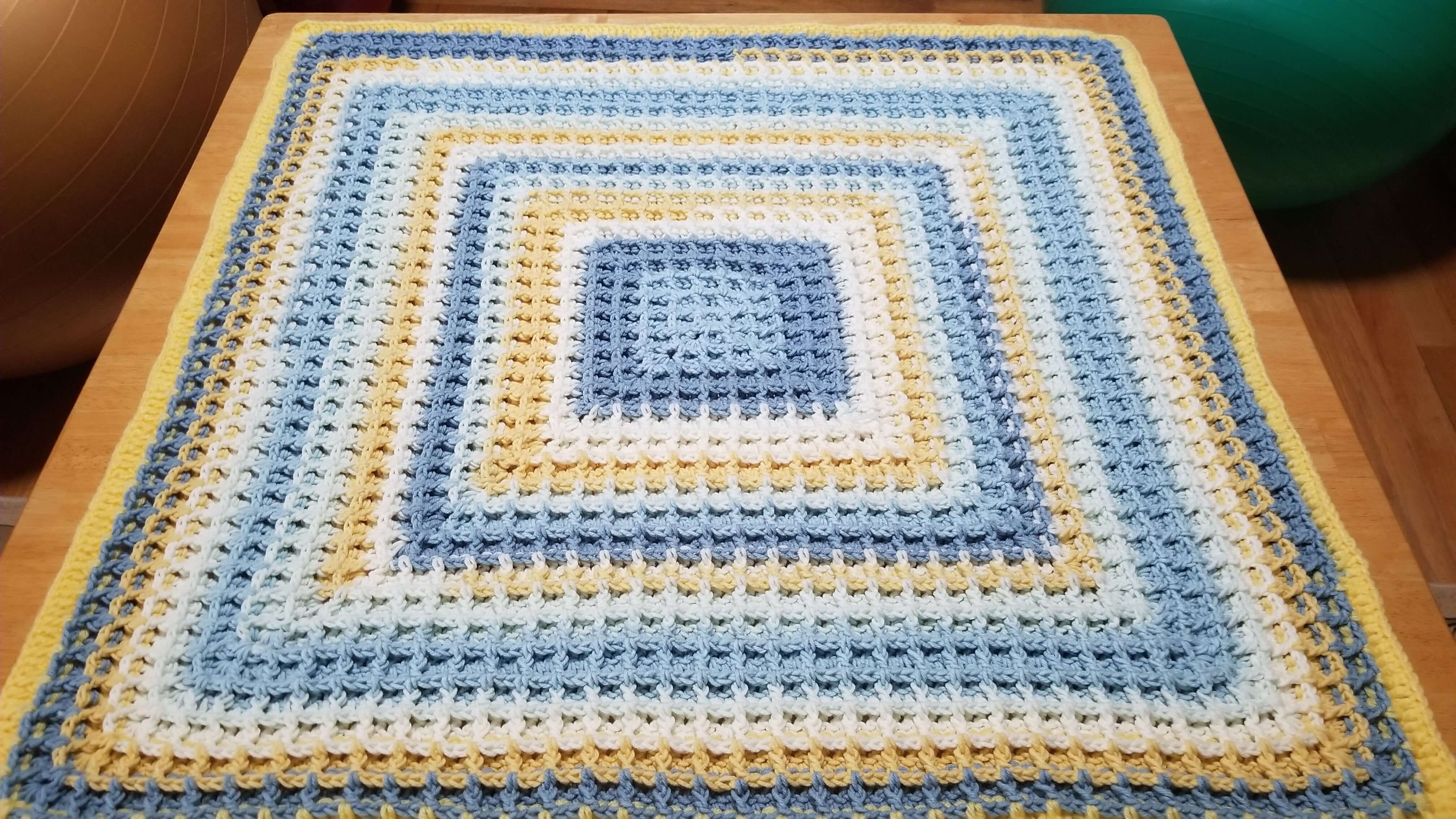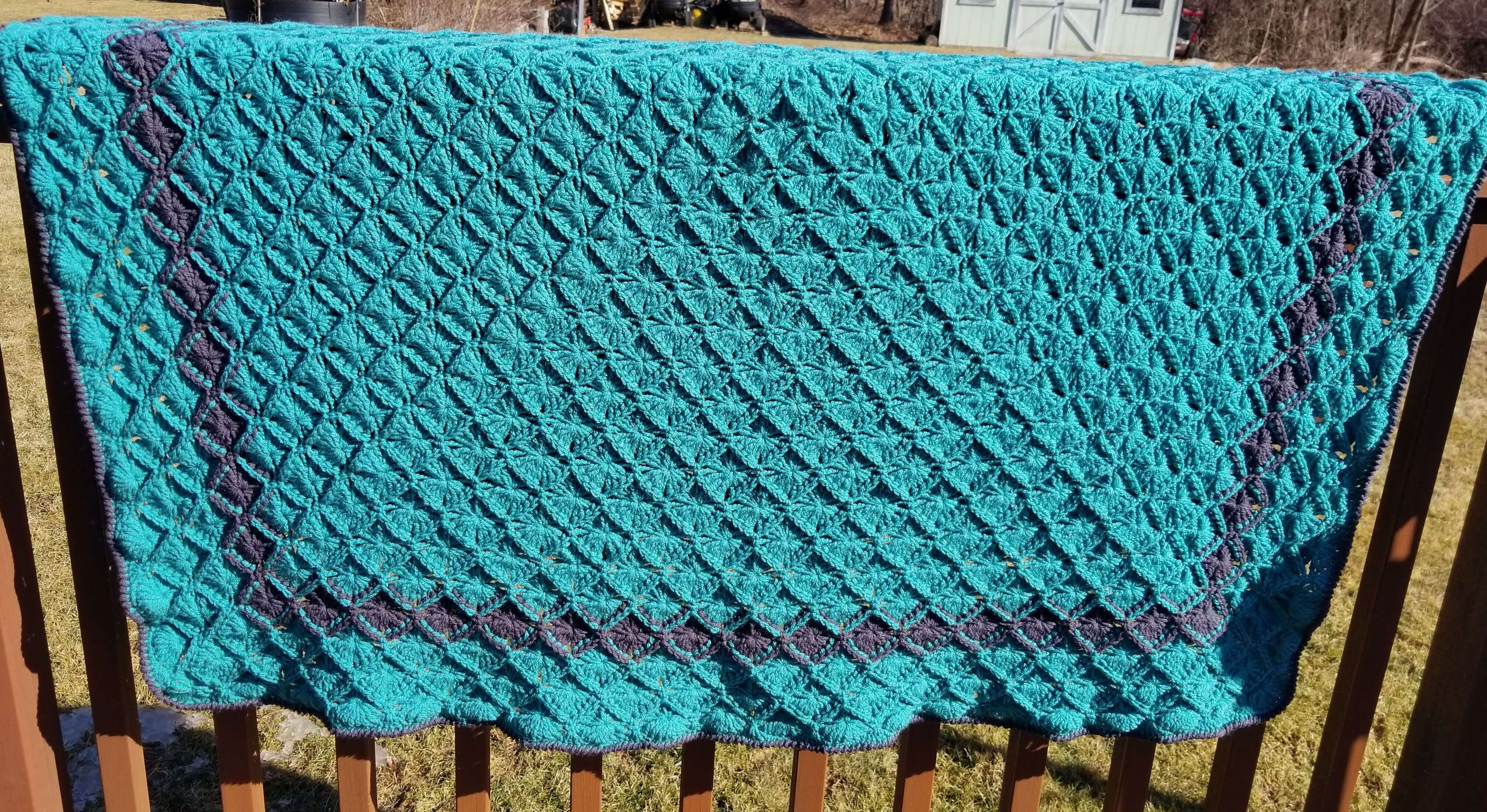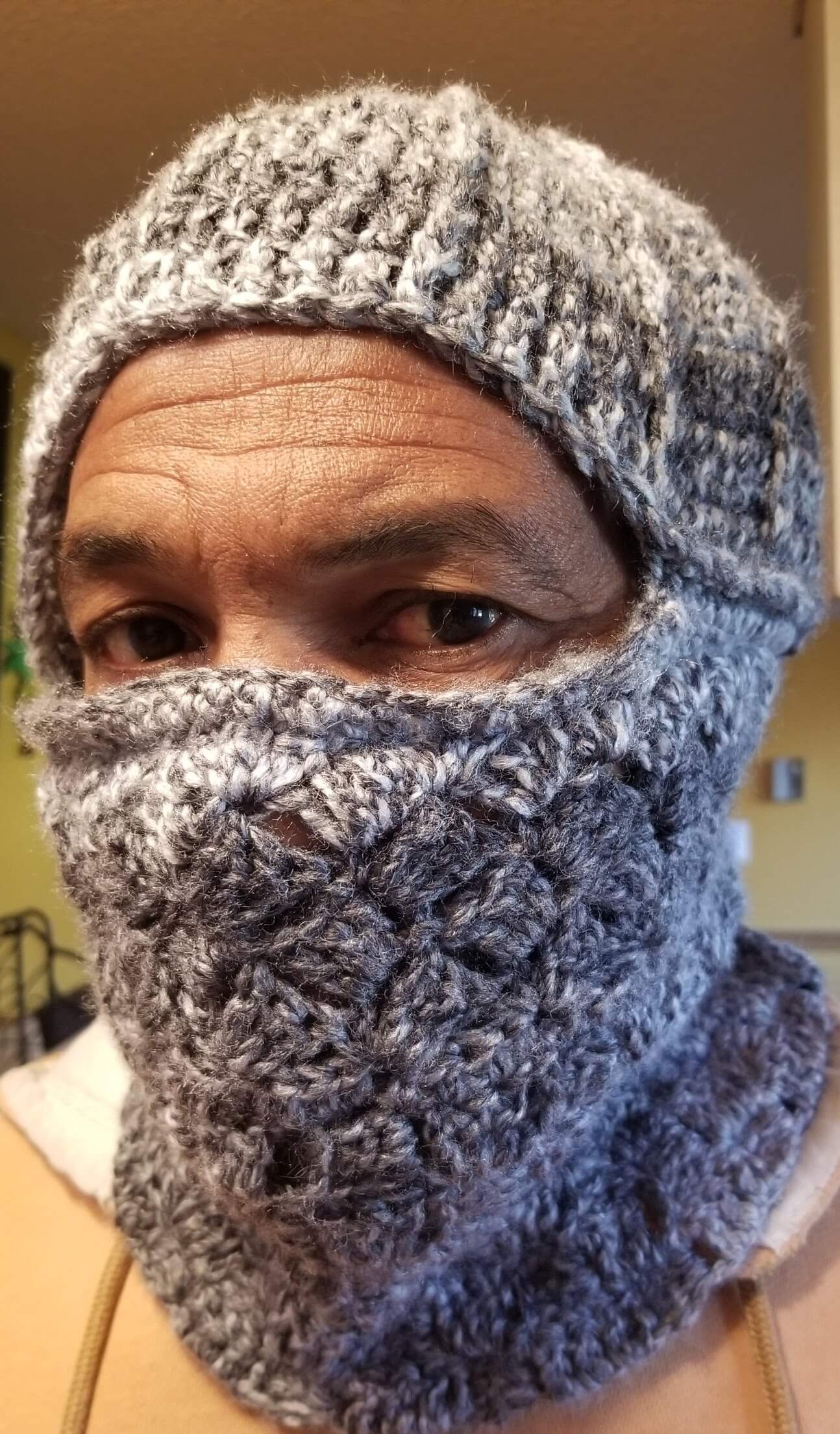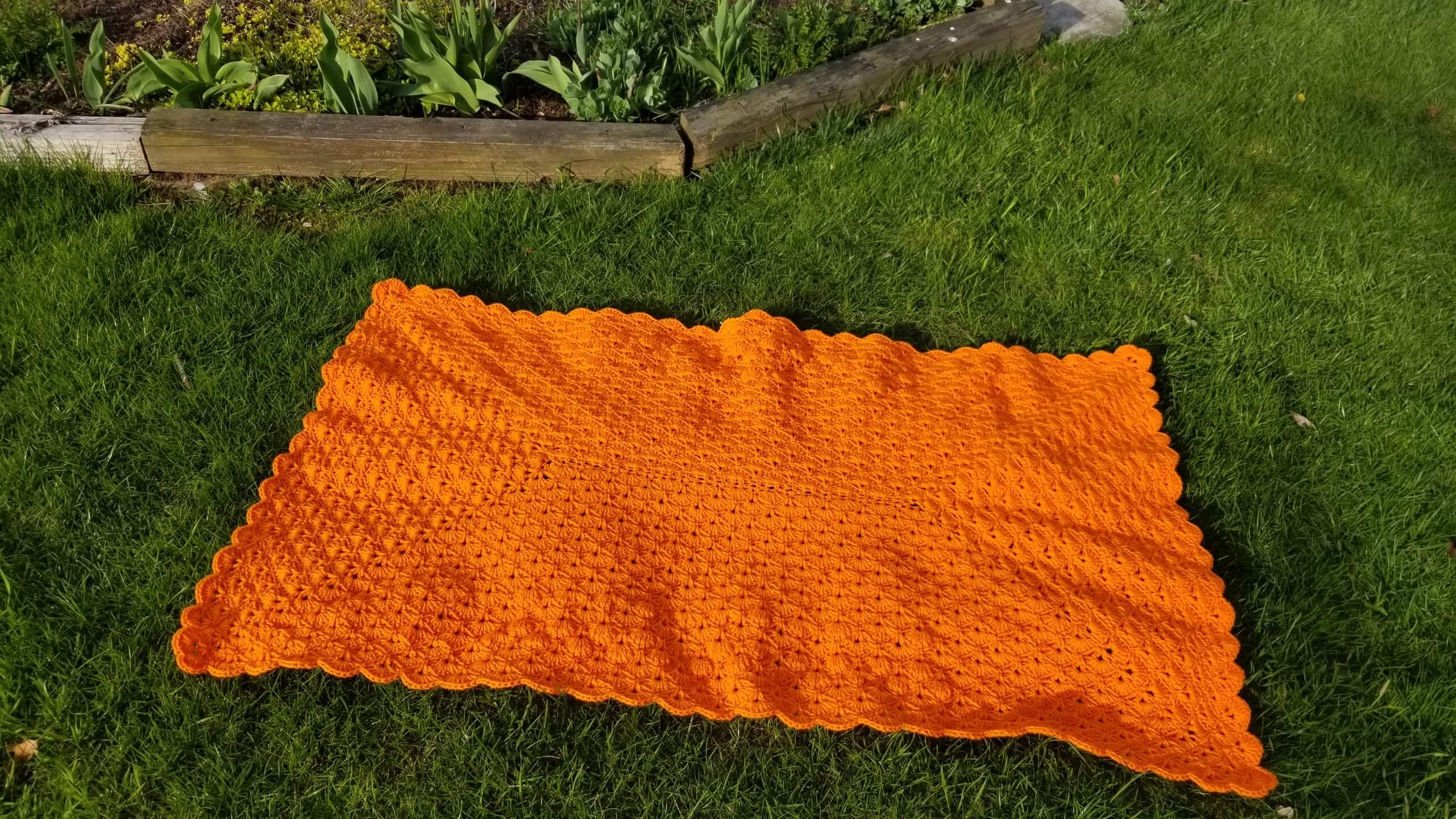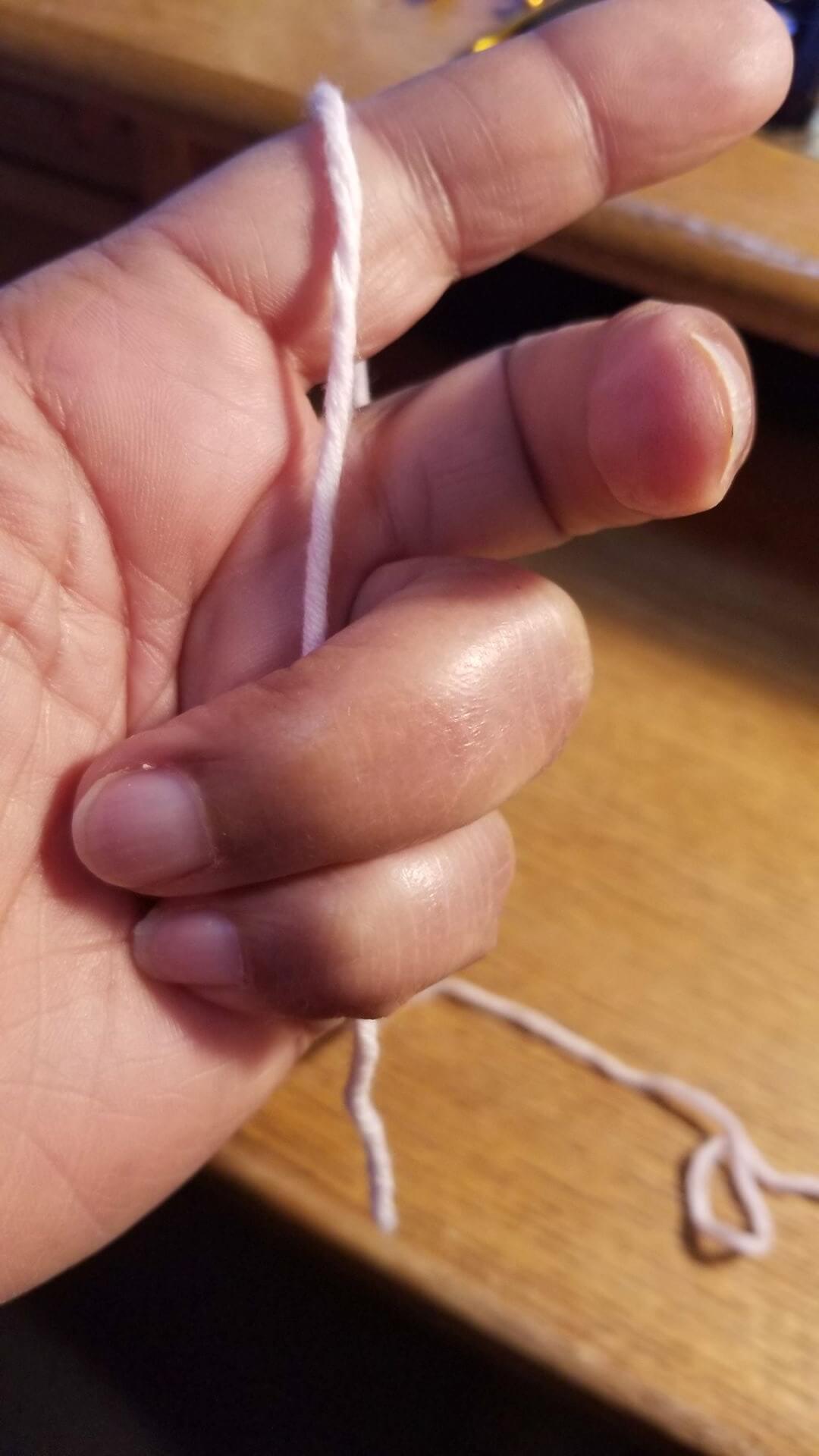- Home
- Blankets
Crochet Blanket Pattern That Anyone Can Make
A crochet blanket pattern is one of the easiest patterns to create yourself. You can use a myriad of techniques and stitches and they are easy once you know a few basic stitches. If you are beginning to crochet, this might be ideal since you will get to practice and perfect your stitch.
More advanced crocheters may get bored with only doing one or two stitches. But there are ways to break up the monotony. Use more challenging stitch techniques and color.
There are two broad blanket categories: Adult and babies. Sizes differ because the usage is different.
Adults use them to cover their lap while sitting on a chair or to cover their bed. Baby Blankets are for security as well as for covering.
Popular Blanket Sizes & Shapes
Blankets come in many different shapes and sizes. Some popular shapes are square, round, rectangle or oblong, hexagon and round.
Generally, a standard baby blanket size measures 42” x 52” (107 cm x 132 cm). A crib blanket is usually 30”x 36” (76cm x 91cm). Receiving blankets measures 40" x 40" (102 cm x 102 cm). Stroller blankets measures 30" x 35" (76 cm x 89 cm). Security Blanket is 12" x 12" ( 30 cm x 30 cm).
Standard adult blankets sizes are: lap blankets 36" x 48", throws 54" x 66", twin/single bed 60" x 90", queen/double bed 90" x 90", king bed 108" x 90"
Can I really make a blanket?
Making a blanket might be scary for some because its a big project. But if you break it down, it will become more manageable. You would do this by making smaller blocks and joining them together.
You can join the pieces as you go because it can be intimidating to end up with a big pile of pieces to join. Decide what you prefer and proceed.
Granny Square Crochet Blanket Pattern
The granny square crochet blanket pattern has been around for a long time. The traditional granny square is a cluster of three double crochet worked in the round. It becomes a square in the end.
Modern granny squares take on a whole different dimension. Patterns can be very elaborate.
With so many different types of granny squares, the hardest part is deciding which square to make.
Continuous Granny Square Blanket Pattern
Baby Blankets for you to crochet
Baby Blankets provide security for them. Mothers also use them as a receiving blanket, a lap blanket, a stroller blanket, or a crib blanket.
Easy Crochet Baby Blanket Pattern
Waffle Stitch Crochet Pattern
What kind of yarn and how much do i need?
Some crochet blankets can be quite heavy. Many people like heavier blankets but some people don’t. You can make lighter blankets by using a different thread or yarn.
It
is difficult to say whether cotton yarns are lighter than synthetic or vice
versa. But an easy way to tell is to put all the skeins in a plastic bag and
compare the weights. This will give you a good idea of the finished weight if
you are not familiar with the yarn.
Be
sure to buy all the yarn needed for your blanket project at once. Yarn that is dyed
in different batches may produce different colors.
It can be tricky to know how much yarn you will need for a project. Crochet pattern designers will give you a required quantity but use this as a guide rather than the rule. Always buy more than the recommended amount. You can use the leftover yarn for a smaller project like hats and scarves or a scrap blanket.
Planning a blanket and need to estimate how much yarn?
Make a swatch with the stitches you are planning to use. Then use those measurements to calculate the yarn. For example: I want a king size blanket measuring 108” x 90”
You will need a full skein of yarn that gives you the yardage on the label and a gram scale, perhaps from your kitchen.
Step 1. Weight the whole skein of yarn that you will be working from with a gram scale. Use the label to tell you how many yards is in the skein. Mine weights 150 grams and is 344 yards.
Step 2. Make your swatch and measure it. Say it measures 7” by 7”.
Step 3. Weight the skein you weighed in step 1 again.
Step 4. Subtract the weight in step 3 from the total weight in step 1. Mine is 20 grams.
Step 5. Do the calculation
344 divided by 150 = 2.30 yards in a gram of the yarn
20 * 2.3 = 46 yards in 7” by 7” or 1656 inches in the swatch
My blanket is 108” x 90” = 9720 inches
9720 divided by 1656 inches = 5.8 rounded to 6 skeins.
I would get 7 or 8 skeins for my project.
Chunky Crochet Blanket Pattern
Lets see what you made
Have you made something you're proud of? We would love to see it.

